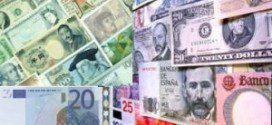Where abroad? In Scandinavia. Why? To seek refuge from currencies like EUR,  USD, CHF, and GBP and diversify your political risk and secure your savings. How? Read on. This article explains why countries and specific banks in Scandinavia deserve your consideration as safe and reliable places to stash some cash abroad.
USD, CHF, and GBP and diversify your political risk and secure your savings. How? Read on. This article explains why countries and specific banks in Scandinavia deserve your consideration as safe and reliable places to stash some cash abroad.
So writes an individual by the name of Streber for www.internationalman.com in an article* entitled Offshore Banking in Scandinavia.
[The following article is presented by Lorimer Wilson, editor of www.munKNEE.com and may have been edited ([ ]), abridged (…) and/or reformatted (some sub-titles and bold/italics emphases) for the sake of clarity and brevity to ensure a fast and easy read. This paragraph must be included in any article re-posting to avoid copyright infringement.]
Streber goes on to say in further edited excerpts:
Why Bank in Scandinavia?
Why would you consider banking in Scandinavia ( which include Denmark, Norway, and Sweden and sometimes Iceland, the Faroe Islands, and Finland)? A few reasons:
- Solid banks. Scandinavia has remained strong throughout the 2009 to 2013 financial crisis. Only a few, smaller banks have gone bankrupt; some mergers were made to save banks.
- Strong non-euro currencies, that is, not tied to the USD or EUR (Denmark, Norway and Sweden).
- Largely unaffected by the euro-crisis.
- Low fees compared to traditional offshore jurisdictions, in line with continental Europe (Netherlands, Germany, Switzerland, etc.).
- Fairly good interest rates.
- Staff that speaks English very well.
- Deposit insurance.
- Private banking and wealth management services are available.
- Low corruption.
- Stable public finances and governments.
- Reputable jurisdictions, some of the oldest democracies in the world.
Danish, Norwegian, and Swedish currencies have remained strong throughout the recent financial crisis. Finland, despite being a eurozone country, has also remained stable. [Granted the same can not be said for Iceland which had a financial crisis from 2008 to 2011.]
Sweden had a financial crisis from 1990 to 1994. One bank was socialized but later privatized and became Nordea but no bank in Scandinavia has gone bankrupt and left customers stranded without money. The governments have traditionally left it to the banks to solve their own messes and have stepped in only when absolutely necessary.
Scandinavian banks have very little exposure to Greece, Spain, Portugal, Cyprus, Italy, France, and other problematic eurozone countries. They are, however, exposed to the Baltic countries (Estonia, Latvia, and Lithuania), whose finances took a tumble in the financial crisis.
How to Bank in Scandinavia
In terms of day-to-day needs for banking, Internet banking is extremely well-developed in Scandinavia, which is reliable and highly functional. However, a foreigner will face two major obstacles:
- Internet banking is not always available in English. There is not much of a solution to this problem. You will either need to find a bank with English Internet banking, use a translation tool, or figure it out.
- Banks in Denmark, Norway, and Sweden are often reluctant to deal with non-residents given their low-risk profile (non-residents are considered risky customers) although there are no laws that forbid foreigners from banking in the Scandinavian countries. Everything in this world has a price, however.
To open a bank account in Scandinavia as a non-resident foreigner, it usually requires a minimum and/or initial balance of at least 1 million SEK/NOK/DKK (between $150,000 and $180,000 USD at current exchange rates). That said, minimum balances and initial deposits are almost always negotiable.
Scandinavian Banks
Below is a list of some of the major banks in Scandinavia:
Norwegian legislation requires that all bank account holders have a Norwegian ID card number. Banks that are open to non-residents will usually handle the application process for you. The ID card has limited usage outside of Norway. It does not grant you residence. All non-resident accounts are reported to the tax authority.
Banking Secrecy in Scandinavia
In short, there is no secrecy that protects you from snooping authorities. Assume that the tax authorities know about every transfer you make.
Banking staff is, however, forbidden from disclosing any information unless compelled by law. Civil cases are not always enough to break the banking secrecy.
Conclusion
Banking in Scandinavia is an interesting option to those seeking refuge from currencies like EUR, USD, CHF, and GBP. It is an interesting option to diversify your political risk and secure your savings.
The banks and jurisdictions have excellent credit ratings; your funds are unlikely to suddenly disappear like what happened in Cyprus.
However, no banking solution is perfect. Always be cautious and always exercise due diligence.
 munKNEE.com Your Key to Making Money
munKNEE.com Your Key to Making Money


